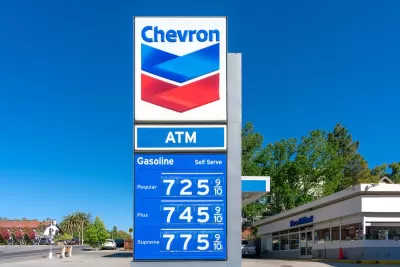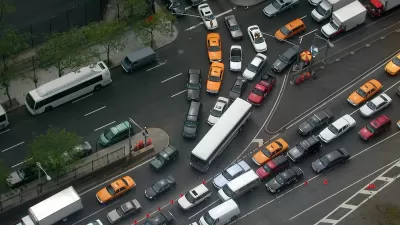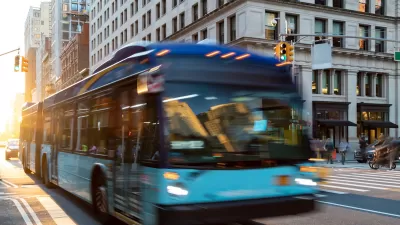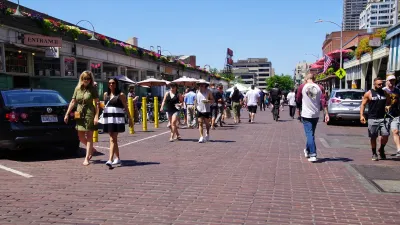Transportation costs are the second-highest household expenditure behind housing for all income levels.

The lowest-income U.S. households shoulder the biggest burden, proportionally, when it comes to transportation costs, according to a report from the U.S. Department of Transportation’s Bureau of Transportation Statistics.
Dan Zukowski outlines the findings in Smart Cities Dive, noting that “Although households with incomes of $28,261 or less spent the least on transportation overall, those expenses consumed nearly 32% of their pre-tax income.” Meanwhile, households at the higher end of the income scale (above $148,682) spent 9.6 percent of their income on transportation, though they spent more overall.
Transportation expenses were the second-largest average household cost for all income levels behind housing, and vehicle ownership and maintenance made up the largest purchases. “Average transportation costs for households in 10 U.S. cities jumped more than 41% over a 10-year period leading up to 2022-2023, according to a separate report from the New York State Comptroller in October.”
FULL STORY: Lowest-income households face highest transportation cost burden: federal report

Study: Maui’s Plan to Convert Vacation Rentals to Long-Term Housing Could Cause Nearly $1 Billion Economic Loss
The plan would reduce visitor accommodation by 25,% resulting in 1,900 jobs lost.

North Texas Transit Leaders Tout Benefits of TOD for Growing Region
At a summit focused on transit-oriented development, policymakers discussed how North Texas’ expanded light rail system can serve as a tool for economic growth.

Using Old Oil and Gas Wells for Green Energy Storage
Penn State researchers have found that repurposing abandoned oil and gas wells for geothermal-assisted compressed-air energy storage can boost efficiency, reduce environmental risks, and support clean energy and job transitions.

Private Donations Propel Early Restoration of Palisades Playground
Los Angeles has secured over $1.3 million in private funding to restore the Pacific Palisades playground months ahead of schedule, creating a modern, accessible space that supports community healing after recent wildfires.

From Blight to Benefit: Early Results From California’s Equitable Cleanup Program
The Equitable Community Revitalization Grant (ECRG) program is reshaping brownfield redevelopment by prioritizing projects in low-income and environmental justice communities, emphasizing equity, transparency, and community benefits.

Planting Relief: Tackling Las Vegas Heat One Tree at a Time
Nevada Plants, a Las Vegas-based nonprofit, is combating the city’s extreme urban heat by giving away trees to residents in underserved neighborhoods, promoting shade, sustainability, and community health.
Urban Design for Planners 1: Software Tools
This six-course series explores essential urban design concepts using open source software and equips planners with the tools they need to participate fully in the urban design process.
Planning for Universal Design
Learn the tools for implementing Universal Design in planning regulations.
Ascent Environmental
Borough of Carlisle
Institute for Housing and Urban Development Studies (IHS)
City of Grandview
Harvard GSD Executive Education
Toledo-Lucas County Plan Commissions
Salt Lake City
NYU Wagner Graduate School of Public Service





























